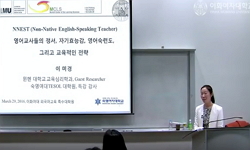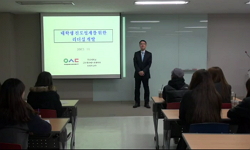The purpose of this study is to investigate the relationship between self-esteem, self-efficacy, and adjustment among university students. Data were collected using self-report instruments in a sample of university students(N=239, 84.9% female). The i...
http://chineseinput.net/에서 pinyin(병음)방식으로 중국어를 변환할 수 있습니다.
변환된 중국어를 복사하여 사용하시면 됩니다.
- 中文 을 입력하시려면 zhongwen을 입력하시고 space를누르시면됩니다.
- 北京 을 입력하시려면 beijing을 입력하시고 space를 누르시면 됩니다.

지역 대학생의 자아존중감과 대학생활적응에서 자기효능감의 매개효과 = The Mediating Effect of Self-Efficacy in the Relationship Between Self-Esteem and Student Adjustment
한글로보기https://www.riss.kr/link?id=A109269004
- 저자
- 발행기관
- 학술지명
- 권호사항
-
발행연도
2024
-
작성언어
Korean
- 주제어
-
등재정보
KCI등재
-
자료형태
학술저널
-
수록면
131-155(25쪽)
- DOI식별코드
- 제공처
-
0
상세조회 -
0
다운로드
부가정보
다국어 초록 (Multilingual Abstract)
Data were collected using self-report instruments in a sample of university students(N=239, 84.9% female). The instruments used were the self-esteem scale developed by Rosenberg, the self-efficacy scale developed by Sherer & Maddux, and the adjustment scale developed by Baker & Siryk. Multiple regressions analyses were conducted to identify the most significant predictors of adjustment to university.
The result of this study showed that the self-esteem, self-efficacy and adjustment to college reported significant associations. The model including self-esteem and self-efficacy explained 48.7% of variability in adjustment to university. Self-efficacy was found to play a mediating role between self-esteem and university adjustment.
These findings indicate that students’ self-esteem and self-efficacy play a crucial role in predicting how well they adapt to university life. The results suggest intriguing considerations about the importance for universities of providing interventions for students that aim to promoting academic achievement and success.
The purpose of this study is to investigate the relationship between self-esteem, self-efficacy, and adjustment among university students.
Data were collected using self-report instruments in a sample of university students(N=239, 84.9% female). The instruments used were the self-esteem scale developed by Rosenberg, the self-efficacy scale developed by Sherer & Maddux, and the adjustment scale developed by Baker & Siryk. Multiple regressions analyses were conducted to identify the most significant predictors of adjustment to university.
The result of this study showed that the self-esteem, self-efficacy and adjustment to college reported significant associations. The model including self-esteem and self-efficacy explained 48.7% of variability in adjustment to university. Self-efficacy was found to play a mediating role between self-esteem and university adjustment.
These findings indicate that students’ self-esteem and self-efficacy play a crucial role in predicting how well they adapt to university life. The results suggest intriguing considerations about the importance for universities of providing interventions for students that aim to promoting academic achievement and success.
동일학술지(권/호) 다른 논문
-
- 한국지역사회학회
- 김명록
- 2024
- KCI등재
-
인구·산업·고용지표 분석을 통한 지역의 복합위기 진단 및 유형화
- 한국지역사회학회
- 조은주
- 2024
- KCI등재
-
- 한국지역사회학회
- 이재민
- 2024
- KCI등재
-
- 한국지역사회학회
- 류장수
- 2024
- KCI등재




 KCI
KCI DBpia
DBpia





